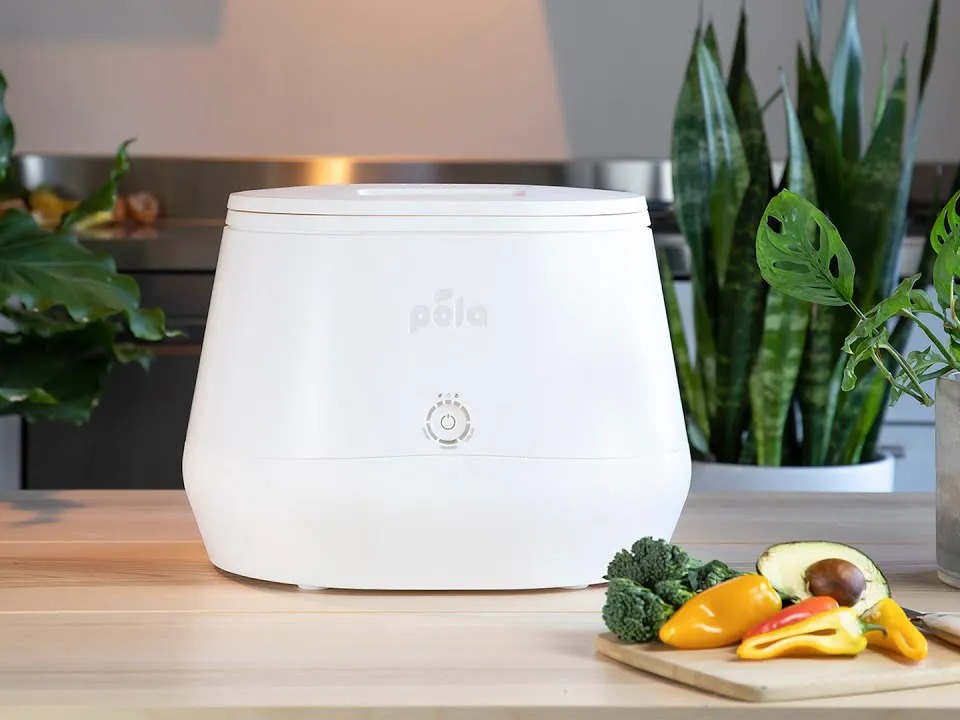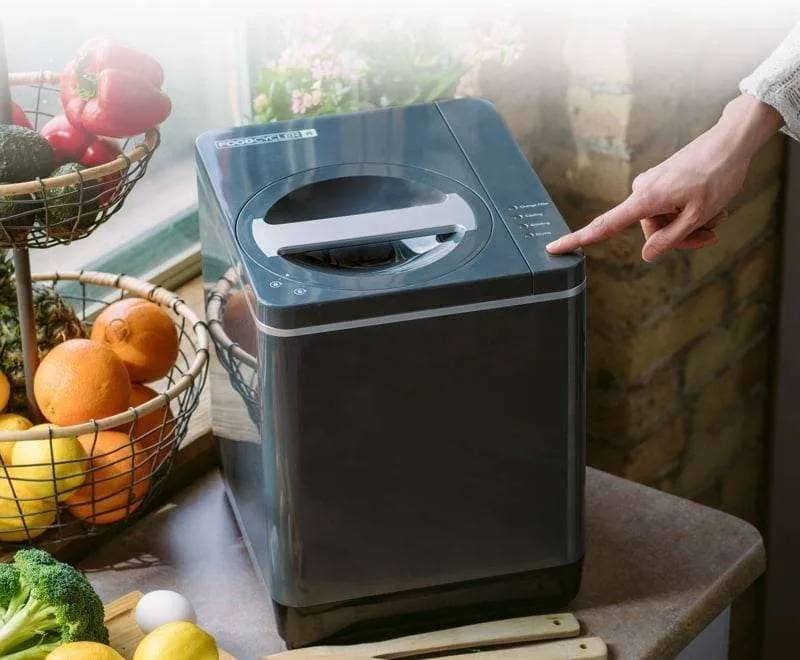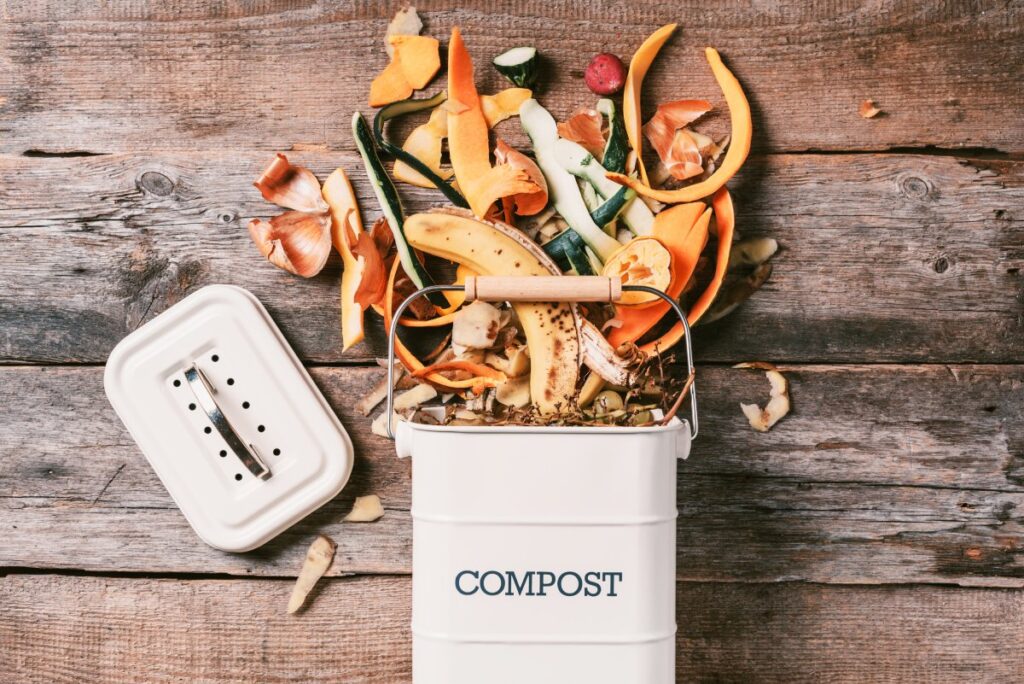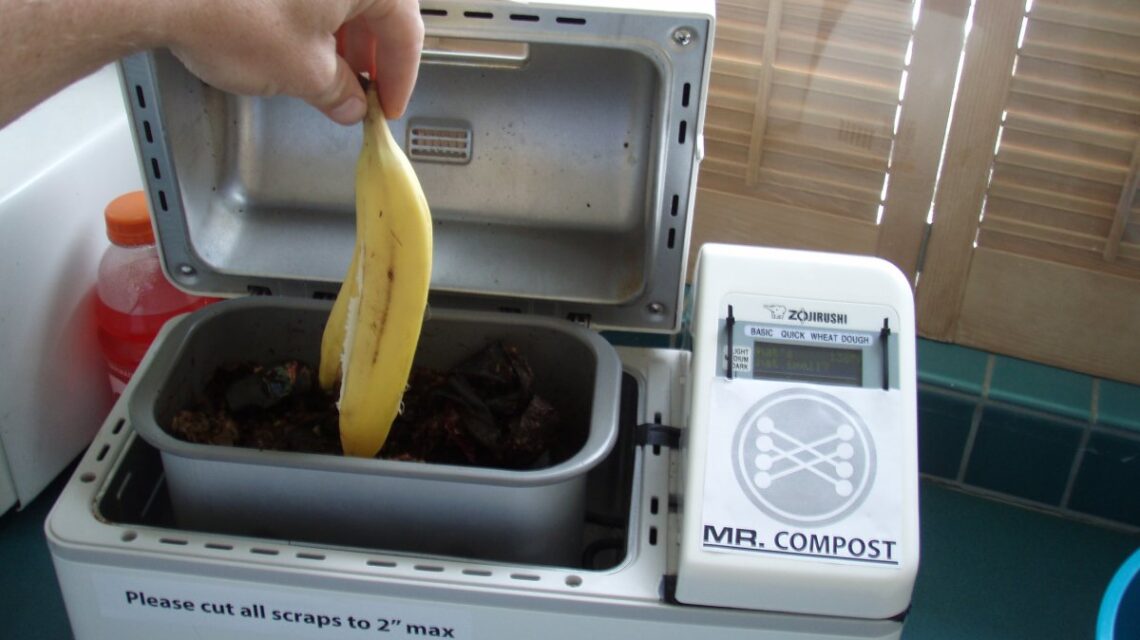Composting is one of the best things that you can do to reduce your carbon footprint and help the environment today. Over 20% of the waste that ends up in landfills is organic and could have been composted, and doing your part can help get this number down where it belongs.
Buying an electric composter can seem like the perfect solution, but does it come with its own downsides like high electricity consumption and energy bills? Here we will take a look at electric composters to see if they really are the answer to your composting needs.
Is an electric composter sustainable?

While it is easy to jump on the bandwagon with any new product that promises to be green, it is essential that you know that your new product is actually as sustainable and environmentally positive as it claims to be.
Electric composters work to reduce pollution and waste by composting your leftovers, garden waste, and so much more. Different brands and types will use varied approaches and can end up with different results. Some use a great deal of heat to break down your waste and then produce a substance that looks a little like coffee grounds (which CAN be composted), which you then add to your plants.
Others use alternate methods. Microorganisms are added the first time you use your Hass Electric Food Composter, and after that, they will continually replicate and replace themselves so that you don’t have to worry about them ever again. These then break down the waste until it becomes a rich fertiliser.
This self-sustainability is one of the aspects of this electric composter that makes it so very appealing as a composting option. As long as you don’t overfill it, or add in any of the products that can mess with the process, your composter will work away and recycle around 1-2kg of organic waste each day.

If you opted to throw out your compostable materials instead, they would be collected up with all the other rubbish and chucked in a landfill somewhere to potentially leak into water supplies and generally add to the terrible pollution already rife in the world.
By contrast, choosing to use an electric composter that swiftly and cleanly turns your rubbish into 100% organic fertiliser that can then be used to grow new fruits and vegetables is by far the better option. By eating, composting, growing and eating new food, you are encouraging a beautiful and sustainable cycle to continue.
One of the best qualities of electric composters is how they work to reduce the amount of methane given off by organic matter in landfills. In the US alone, foods and other waste that could be composted give off the third highest amount of methane in the whole country. By contrast, electric composters don’t give off any methane while they work.
It is true that the materials used to manufacture these composters can be less sustainable, but the benefits that they create outweigh the initial cost in plastic. You can also choose to go with a brand that is more eco-friendly, that allows you to wash and reuse the filters rather than one where you have to replace them.
How much electricity do electric composters use?

Some people shy away from getting an electric composter as they fear that it will cost an arm and a leg, and negate some of the positives with a pricey energy bill. In fact, on average, an electric composter will only use around 150-200kWh per year, or around about the same as your coffee machine would use.
So many appliances in your home will use so much more electricity than that, and many of them you may not even want or need anymore. If you buy an electric composter, plug it in and have it running but don’t actually use it, then of course it is a terrible waste of money and electricity.
If, on the other hand, you are planning to fill it up regularly and reduce your carbon footprint by processing up to 2kg of waste a day into the best compost you can create, then spending roughly as much as any other small appliance on electric doesn’t seem a big price to pay.
While it does indeed use electricity, your composter will allow you to save money by growing your own fruit and vegetables in your fantastic rich fertiliser, will help to reduce methane and pollution, and is a step towards helping save the planet that you can get started on today.
Is an electric composter worth it?

All in all, an electric composter is one of the best appliances you can buy today to improve both your life and the planet, while also creating a sustainable way to reduce and recycle your organic waste. If you aren’t going to use it then it is a waste of money and plastic, but if you have got to this point then that doesn’t seem likely to apply to you.
An electric composter is so convenient, it fits right in your kitchen and goes through an impressive amount of matter a day without any bad odours or other issues that come with traditional composting. You don’t have to worry about attracting pests, and you can create rich and wonderful fertiliser at the push of a button.
There are downsides to everything, and your composter will cost you in electricity and time if you are to keep it going, but these pale in comparison to all of the benefits there are to composting your own waste easily at home.
Conclusion
Doing your part for the environment is so important today, and so is finding the best ways to process and recycle whatever rubbish you can to prevent it from ending up in a landfill and contributing to the greater problems of pollution and waste.
An electric composter does indeed use a small amount of electricity to work, but the impact it can have on the amount you chuck away will astound you, and you will be left with lovely organic fertiliser to grow new food and plants all over again.



